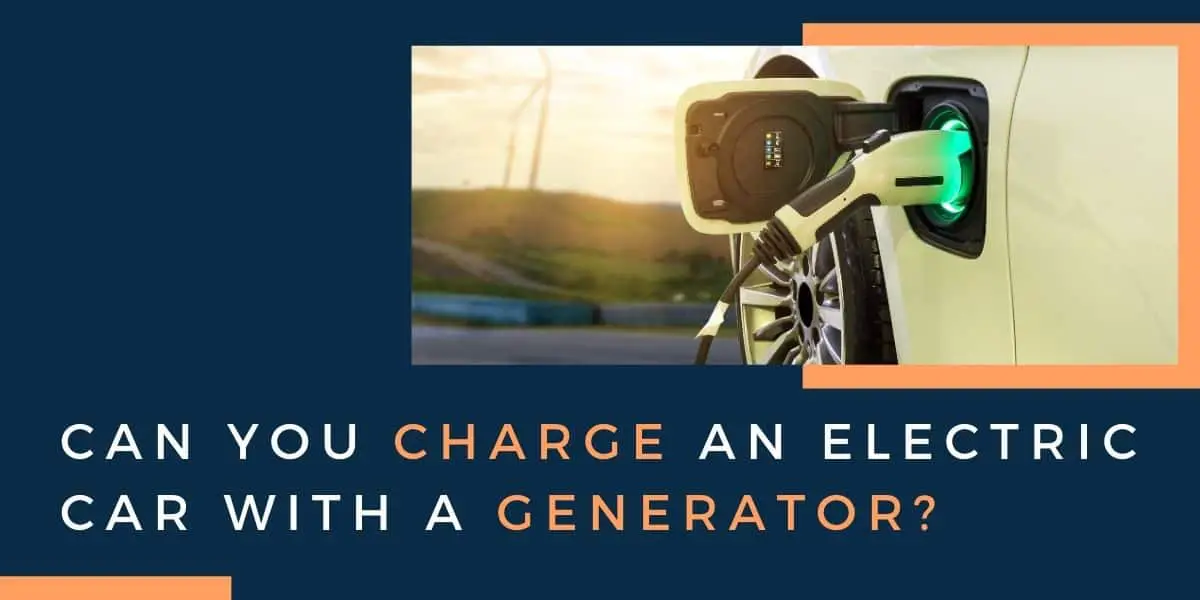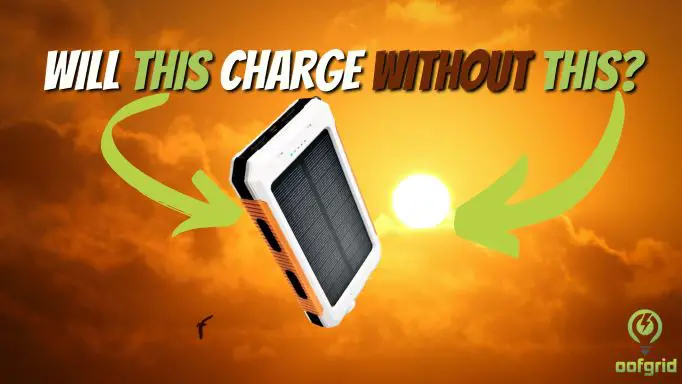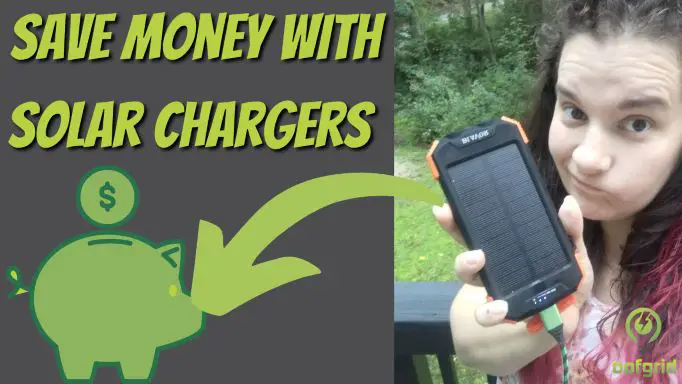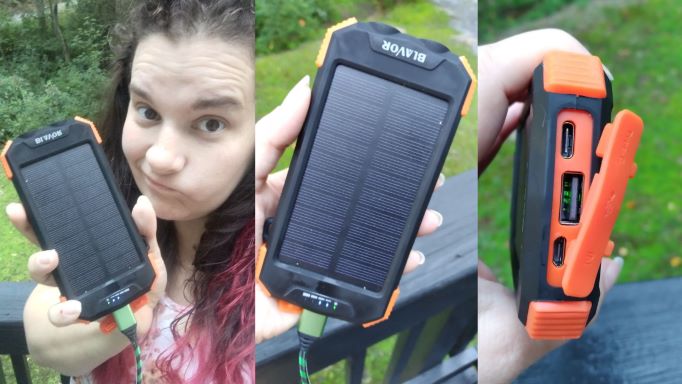When it comes to passenger vehicles, more and more people are making the switch over to electric cars. While Tesla may be leading the charge in that direction, other leading automotive players from the US and beyond, like Chevrolet and Nissan, have also built impressive electric vehicles (or EVs) of their own.
Still, one obstacle to the use of EVs is on the challenge of charging those vehicles. Sure, you can charge them at home or a charging station. But the fact remains that charging stations aren’t yet as common as gas stations.
That begs the question, “Can you charge a Tesla with a generator?”, or any other electric vehicle, for that matter.
The answer is YES; you can indeed charge an electric car with a generator. But it’s very challenging. Being able to charge your EV with a generator is fantastic, as it theoretically means that you can keep your EV going no matter how far away you are from home or a charging station.

In theory, all you’d need to do is take a portable generator in the trunk. You’d just have to take it out and use it if you run out of power and need to recharge your EV on-the-go.
Unfortunately, the critical term here is ‘theoretical’. While there is a lot of truth to the statement, it’s much easier than it sounds. Charging your Tesla or other EV with a generator is not a straightforward ‘plug and play’ situation.
Contents
Why would you want to charge an electric car with a generator?
First and foremost, let’s get one thing clear: why would you or anyone want to charge their Tesla with a portable electric generator? Well, here are three reasons:
- Charging Stations Aren’t Everywhere
The first and most obvious answer is that EV charging stations aren’t available everywhere. Sure, some cities will have more than others. But if you’re driving cross-country, you might find yourself in a location that doesn’t offer you the facilities you need to keep your EV going. - Charging Stations Might Be Inaccessible
Even if they do have charging stations everywhere, there might be situations where you’re unable to access or use them. Take natural disasters, for instance. Wildfires and floods may cause damage to the charging stations in your city. The power grid might also go down, taking away your ability to charge your electric car, even at home! - To Live Off-The-Grid and Avoid Relying On The National Power Grid
Lastly, some people prefer having ways of living off-the-grid. People with a survivalist mindset, for instance, love the benefits of owning an EV (like not having to rely on gas, plus the EV’s high mileage on a single charge). Still, they’d also want a way to recharge them without necessarily relying on the national power grid.
The Challenges of Charging An Electric Car With A Generator
Let’s repeat it: yes, it is entirely possible to charge an electric car using a portable generator. However, some pretty big challenges come with trying to do that. Let’s take a closer look at a few of them.
Small Generators Are Too Weak
Firstly, when people talk about charging an electric car with a generator, they’re usually thinking about the small portable generators that can fit neatly in the trunk.
These are the kinds of portable electric generators that run on gas, diesel, or even propane. While they might be excellent for camping trips to charge your phones or even power small appliances, they’re not so good for fully-charging a full EV.
Still, if you’ve got the right adapters for your Tesla, Chevy, or whatever EV you drive, you can power up a small generator and hook it up to your car’s charging port.
When doing that, you may find yourself faced with two significant issues. Firstly, the generator may struggle to produce enough power even to start charging the car at all. Your generator will get louder as it tries its best to keep up with the demands of the EV’s charging port.
Second, and this is assuming your EV is taking in power supplied by the generator, you’ll notice that the car is charging at a snail’s pace.
So, looking back at the central question of “Can you charge an electric car with a generator?” the answer is still technically YES. Though, doing it with a small generator might only be practical for an emergency where you have no other choice.
If you’re going to use a generator to charge it regularly, you might need something a lot bigger.
Big Generators Are… Well, They’re Big
“Portable” generators come in all shapes and sizes. You have the ones mentioned earlier, which are small and compact enough to fit in the trunk of your Tesla.
Yet, you also have portable generators in much larger sizes, all the way up to one that’s as big as the car itself. Larger generators can’t exactly fit in your trunk, so you’ll have to tow them if you want to bring them around.
Without question, all of these larger generators can charge up your EV much easier and much quicker as well. Still, these generators are impractical to carry inside your electric car, let alone tow around everywhere.
So, depending on your reason for wanting to charge your vehicle with a generator, they’re probably not feasible options.
If you’re looking for a way to extend the range of your EV, a generator of any size might not be practical. As we’ve seen earlier, small, portable generators aren’t very good at charging your EV. You might only find them useful in an emergency where you have no other choice.
However, if you’re deliberately living off-the-grid or preparing for a natural disaster, then having a bigger generator at home to charge your EV might be a workable option.
Not only can you charge your car with a bigger generator, but you’ll also be able to power your entire house during a natural disaster.
Where to buy a Honda EU7000IS
No products found.
Fossil Fuels and Emissions
Also, try to think back to the reason you bought an electric car in the first place. Why did you make that important decision? The odds are that you made that decision, at least partly, to avoid consuming fossil fuels and producing harmful emissions. You probably wanted to save on gas and reduce your carbon footprint, and those reasons are valid and noble.
Sadly, by relying on gas, diesel, or propane-powered generators to charge your EV, you’re kind of violating that reasoning.
Sure, generators don’t produce as many harmful emissions as an automotive combustion engine, it still does pollute the air. Don’t forget: a portable generator consists of a motor that combusts fuels and converts it into electrical power!
Final Thoughts
To sum it all up, yes, you can still charge an electric car with a generator. Unfortunately, that might only be a practical solution in the case of an emergency.
If you’re planning on doing it long-term, you would require a significantly larger generator than one that can fit in the trunk of your car. At that point, doing it won’t be feasible, and it would certainly go against most reasons for owning an electric vehicle in the first place.
More Suitable Portable Generators
Last update on 2025-06-11 / Affiliate links / Images from Amazon Product Advertising API









